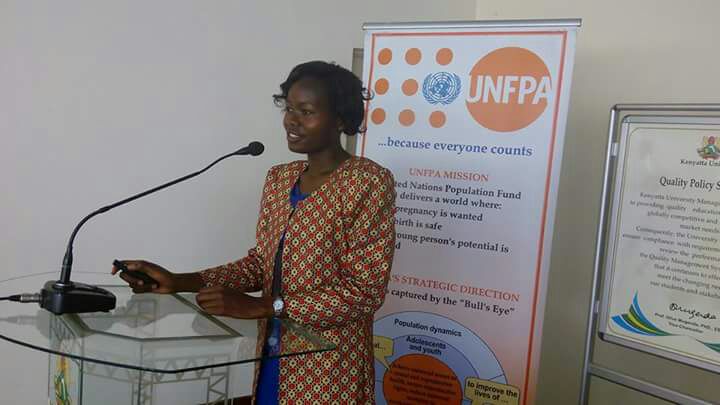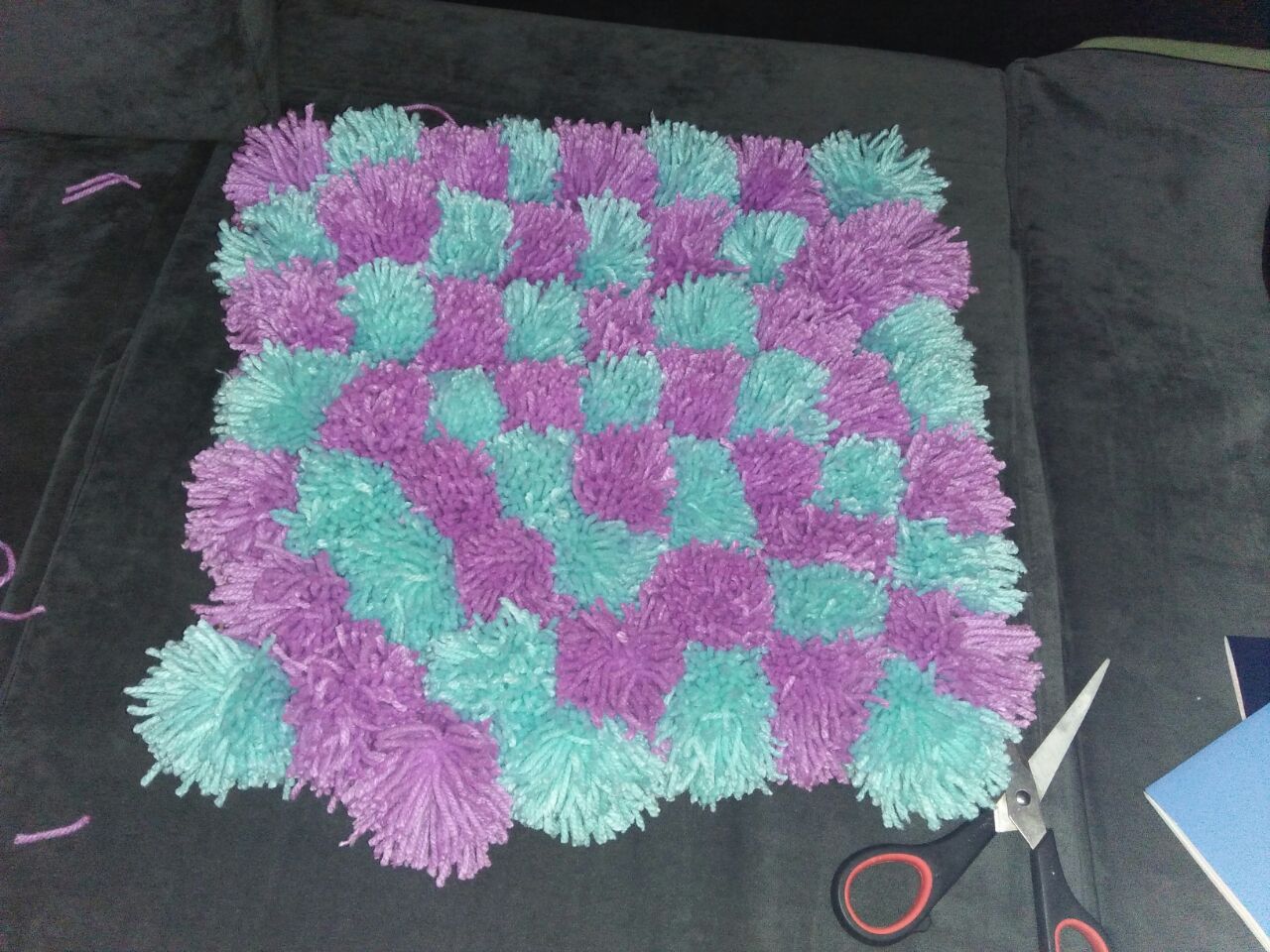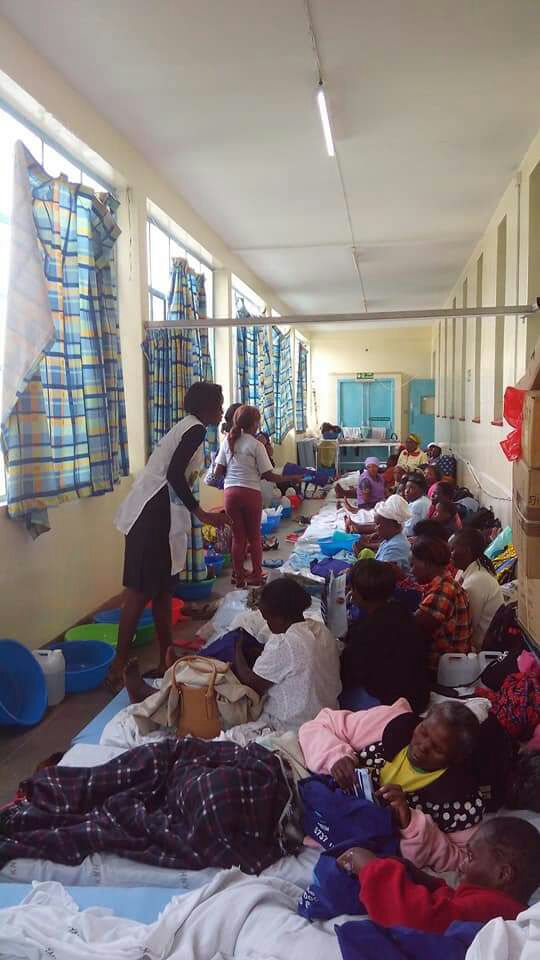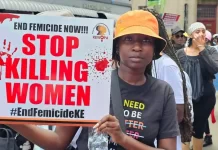By Lilian Museka
Lucy Muriithi, 24 is a degree holder in health services management from Kenyatta University. She is currently pursuing Masters of Science in health Economics and Policy at the University of Nairobi.
Her passion to study health courses was driven by the suffering which women in her village underwent as a result of obstetric fistula and the pain that it brings along.
“Some women would be chased away from their matrimonial homes by their husbands because of the condition. They were stigmatized and could not interact with other community members. I would feel so bad and wished I was in a position to help them,” she says.

Lucy, who wants to be a policy maker in matters of health, says her concern for the women and the urge to do something was stirred up when in 2014, she saw a 65-year-old woman suffering from fistula, leave the church during a mass following urine leakage.
“We were attending a mass at Mukuuri Catholic Church in Runyenjes when I saw a woman walk out with her clothes wet. Many people stared at her, talking in low tones of her weird condition. I followed her, unfortunately, she refused to talk to me and ran away,” she sadly says.
Despite her condition, Lucy says the woman kept on coming to church every Sunday with the hope that God would heal her. “I observed her behavior for three months and concluded that it was an abnormal condition. She needed help!” She adds.
The mother of seven finally opened up to Lucy terming her condition ‘a bad omen’ that had sent her husband away. The woman confided into Lucy that she had been living with the condition for the last 28 years, from the time she gave birth to her last born child.
During her attachment at the Coast General hospital in 2014, Lucy encountered more shocking cases of fistula patients. “I was shocked to see many women suffer from urine leakage. T his arose my desire to research more on it,” she says.
Back at home in Runyenjes, Lucy read about the Fistula camp that was to be held at Kenyatta National Hospital (KNH) in 2015. She mobilized women suffering from the condition, and with support from her parents and the then Runyenjes Member of Parliament Cecily Mbarire took them to KNH, “Of the 14 women who attended the camp, one was 18 years old. She developed obstetric fistula at 16 while giving birth. “She sadly lost the baby and her husband deserted her.”
The Masters student says she has been working on social re-integration of the survivors in the community through her organization, Ganna Fistula Foundation.
Ganna works to reach out to fistula survivors in Embu County and ensure they are treated and empowered with entrepreneurial skills to help them integrate back in the society. Additionally, through advocacy, the organization creates awareness in the community that fistula is treatable and should not be stigmatized.

She however has no donor and depends on well wishers. “Most of these women are so poor, some of them having been abandoned by their husbands. However, the most important thing is to empower them economically so that they are able to put food on the table. We chose mat making as the cheapest means and with the most available market,” She says, adding that the” Katholischer akademischer auslauder dienst’ (Kaad) translated to the Catholic Academia Exchange service awarded her a Masters Scholarship, which comes with a monthly stipend of Ksh.22,00 .This is what she uses to support the survivors’ project. She has also enrolled them for the National Hospital Fund (NHIF) that helps them during sickness.
Freedom from Fistula Foundation has since come on board to fund patient’s treatment, offer counseling and transport. The patients are able to access free treatment at Kenyatta National Hospital and St. Mary’s hospital in Langata.
The Foundation reports that an estimated 2 million women and girls in Africa suffer from obstetric fistula caused by prolonged, obstructed childbirth and lack of access to maternity care.

The Kenya Demographic Health Survey (KDHS) 2014 reports that there are atleast 3000 cases of obstetric fistula reported annually with a record 300 of them being youth
Lucy faces challenges such as stigma which sends the survivors into hiding, poverty levels and inaccessibility to local medical centres due to poor roads “One day I had to pay Ksh. 1,000 to hire a motor bike to take me to the nearest health centre, which unfortunately was closed by the time I got there,” she sadly says.
She also partly blames some church institutions in her village that discourages use of medication, citing an incident where she almost got beaten up for administering medication to the survivors.
Her Foundation, based in Runyenjes, Embu County has since worn her fellowship with Akili Dada, an organization that awards a yearlong fellowship to young women leaders engaged in social change projects of their design.
Programs Officer at Akili Dada Ann Njeru says the program is grown on the belief that African women especially those from poor communities are best positioned to design solutions to the challenges they face.
“The goal of the program is to build the capacity of some of the continent’s most innovative young women change makers to drive solutions to some of the biggest challenges facing African society,” she says.
Driven by the suffering, the stigma and the pain that fistula brings along, Lucy aims to restore smiles on the survivors’ faces in her community.
“My fellowship with Akili Dada will enable me to see more women treated and also empower them with entrepreneurial skills. “ I fore see a strong foundation where all fistula survivors will find shelter and receive love again which for many years they have lacked” she confidently says.
She concludes that though it is a tough job to do but the joy and smile that the patients wear when living the wards give her the spirit to move on.
Recently, Lucy was invited to make a presentation on ‘Youth and Fistula’ during the International Reproductive Health Conference on Obstetric Fistula held at Kenyatta University. She urged stakeholders to partner in identifying risk factors to fistula among the youth.














Wow! So happy for you Lucy! May God lift you higher to continue touching more lives!
Comments are closed.